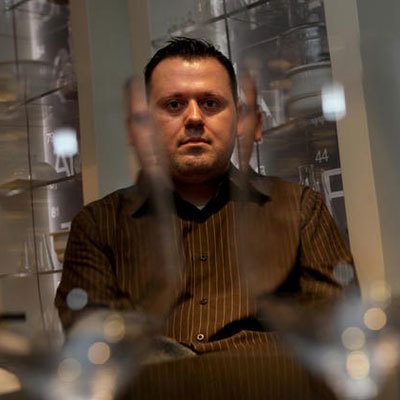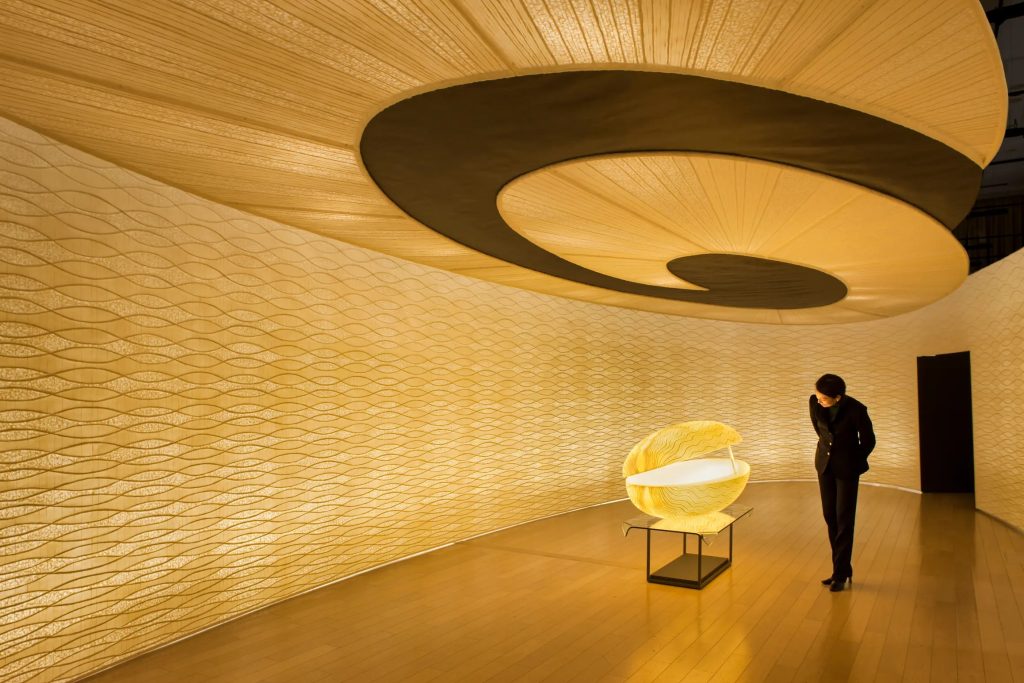Link About It: This Week’s Picks
Translating whale sounds, embracing the ocean as a garden, and two carbon emission developments this week

Spanish Chef Ángel León Wants Us To View The Sea as a Garden
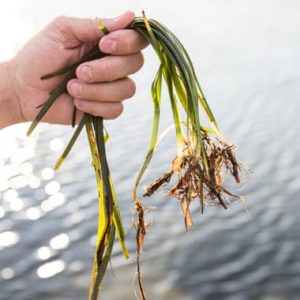 Known in Spain as “el chef del mar” or “the chef of the sea,” Ángel León had encountered the seagrass known as Zostera marina countless times during his life, but in 2017 (the same year he won his third Michelin star at his restaurant, Aponiente), he decided to look at how it could be used in the culinary world. Perhaps unsurprisingly, he found that an Indigenous group—the Seri people, who are from the Gulf of California in Sonora, Mexico—had long based much of their diet on Zostera marina, “a clutch of tiny green grains clinging to the base of the eelgrass.” Renowned for his clever and creative use of seafood, “fashioning chorizos out of discarded fish parts and serving sea-grown versions of tomatoes and pears at his restaurant,” León was determined to add it to his menu somehow. With a goal to serve “everything that has no value in the sea” and to introduce more people to “understanding the sea as a garden,” León and his team continue testing it in various ways—from grinding it into flour to cooking it like rice. Ultimately, they hope their research and testing results in harnessing “the plant’s potential to boost aquatic ecosystems, feed populations and fight the climate crisis.” He says, “In the end, it’s like everything. If you respect the areas in the sea where this grain is being grown, it would ensure humans take care of it. It means humans would defend it.” Read more at The Guardian.
Known in Spain as “el chef del mar” or “the chef of the sea,” Ángel León had encountered the seagrass known as Zostera marina countless times during his life, but in 2017 (the same year he won his third Michelin star at his restaurant, Aponiente), he decided to look at how it could be used in the culinary world. Perhaps unsurprisingly, he found that an Indigenous group—the Seri people, who are from the Gulf of California in Sonora, Mexico—had long based much of their diet on Zostera marina, “a clutch of tiny green grains clinging to the base of the eelgrass.” Renowned for his clever and creative use of seafood, “fashioning chorizos out of discarded fish parts and serving sea-grown versions of tomatoes and pears at his restaurant,” León was determined to add it to his menu somehow. With a goal to serve “everything that has no value in the sea” and to introduce more people to “understanding the sea as a garden,” León and his team continue testing it in various ways—from grinding it into flour to cooking it like rice. Ultimately, they hope their research and testing results in harnessing “the plant’s potential to boost aquatic ecosystems, feed populations and fight the climate crisis.” He says, “In the end, it’s like everything. If you respect the areas in the sea where this grain is being grown, it would ensure humans take care of it. It means humans would defend it.” Read more at The Guardian.
Image courtesy of Álvaro Fernández Prieto/Aponiente
Heatherwick Studio + IM Motors’ Air-Cleaning Electric Car, Airo
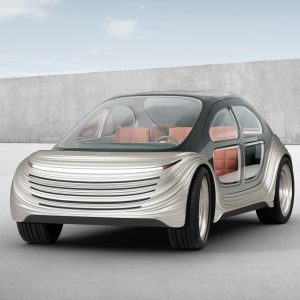 Unveiled at the Shanghai Motor Show, the Airo electric car will “vacuum up pollutants from other cars” using an integrated HEPA filtration system. The autonomous vehicle (which will offer a driver-controlled mode, too) is the first from new Chinese automotive brand IM Motors and it’s the first car to be designed by London-based Heatherwick Studio. In addition to the proposed environmental benefits, the car’s dynamic interior design includes rotating seats that can face each other around a foldable table or lay flat into a bed, creating a multi-functional space. It is set to go into production in 2023. See more photos and read more specs at Dezeen.
Unveiled at the Shanghai Motor Show, the Airo electric car will “vacuum up pollutants from other cars” using an integrated HEPA filtration system. The autonomous vehicle (which will offer a driver-controlled mode, too) is the first from new Chinese automotive brand IM Motors and it’s the first car to be designed by London-based Heatherwick Studio. In addition to the proposed environmental benefits, the car’s dynamic interior design includes rotating seats that can face each other around a foldable table or lay flat into a bed, creating a multi-functional space. It is set to go into production in 2023. See more photos and read more specs at Dezeen.
Image courtesy of Heatherwick Studio
Researchers Use Artificial Intelligence to Translate Whale Talk
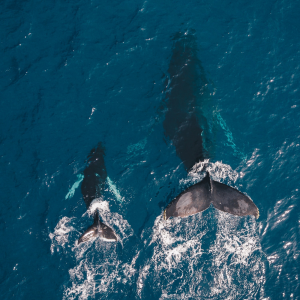 To understand the “clicks” sperm whales make to talk (stringing together a series of statements called “codas”), researchers have launched a five-year-long quest called Protect CETI. It’ll be the most comprehensive attempt at interspecies communication ever, the team believes. CETI (Cetacean Translation Initiative) begins with the capturing and cataloging of millions of morse-code-like whale vocalizations. Video and audio tools will be used, and the data will be fed to an AI that uses natural language processing (the tech that brought us Siri and Alexa) to decode it. Cues from captured video will provide context to the conversations and, if all works according to plan, will bring researchers closer to a breakthrough than ever before. Read more at National Geographic.
To understand the “clicks” sperm whales make to talk (stringing together a series of statements called “codas”), researchers have launched a five-year-long quest called Protect CETI. It’ll be the most comprehensive attempt at interspecies communication ever, the team believes. CETI (Cetacean Translation Initiative) begins with the capturing and cataloging of millions of morse-code-like whale vocalizations. Video and audio tools will be used, and the data will be fed to an AI that uses natural language processing (the tech that brought us Siri and Alexa) to decode it. Cues from captured video will provide context to the conversations and, if all works according to plan, will bring researchers closer to a breakthrough than ever before. Read more at National Geographic.
Image courtesy of Guille Pozzi
How to Book National Park Tickets Through Their New Reservation System
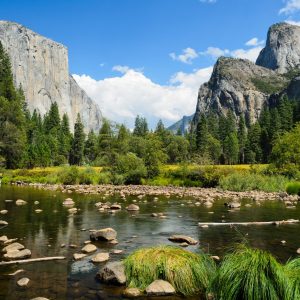 In the midst of the pandemic, several National Parks across the US saw a record number of visitors. To comply with safety measures then (and now) some of the most popular—including Acadia, Glacier, Rocky Mountain and Yosemite—developed a ticketed system for day-use visitors. Reservations are either free or nominal ($2 to $6), but these passes are likely to disappear quickly. To navigate each park’s systems, iconic outdoor magazine Outside has compiled an online guide with opening dates, necessary links, tips and tricks if you miss out the first time. Read more about all the specifications at Outside.
In the midst of the pandemic, several National Parks across the US saw a record number of visitors. To comply with safety measures then (and now) some of the most popular—including Acadia, Glacier, Rocky Mountain and Yosemite—developed a ticketed system for day-use visitors. Reservations are either free or nominal ($2 to $6), but these passes are likely to disappear quickly. To navigate each park’s systems, iconic outdoor magazine Outside has compiled an online guide with opening dates, necessary links, tips and tricks if you miss out the first time. Read more about all the specifications at Outside.
Image courtesy of Wikimedia Commons
Do Your Laundry With Capsules From Recycled Carbon Emissions
 Produced from CO2 emissions that have been captured at a Chinese steel mill, Unilever’s latest laundry capsule (released by their Omo subsidiary) forgoes the use of new fossil fuel consumption. Many might not be aware that loss fuels go into detergents (through a key component known as surfactants), but with the assistance of biotech company LanzaTech and green chemical company India Glycols, Unilever hopes to eradicate it from their cleaning supplies by 2030. Omo capsules went on sale 22 April in China. Read more about the chemical process behind it all at Fast Company.
Produced from CO2 emissions that have been captured at a Chinese steel mill, Unilever’s latest laundry capsule (released by their Omo subsidiary) forgoes the use of new fossil fuel consumption. Many might not be aware that loss fuels go into detergents (through a key component known as surfactants), but with the assistance of biotech company LanzaTech and green chemical company India Glycols, Unilever hopes to eradicate it from their cleaning supplies by 2030. Omo capsules went on sale 22 April in China. Read more about the chemical process behind it all at Fast Company.
Image courtesy of Unilever
Link About It is our filtered look at the web, shared daily in Link and on social media, and rounded up every Saturday morning. Hero image courtesy of Heatherwick Studio

